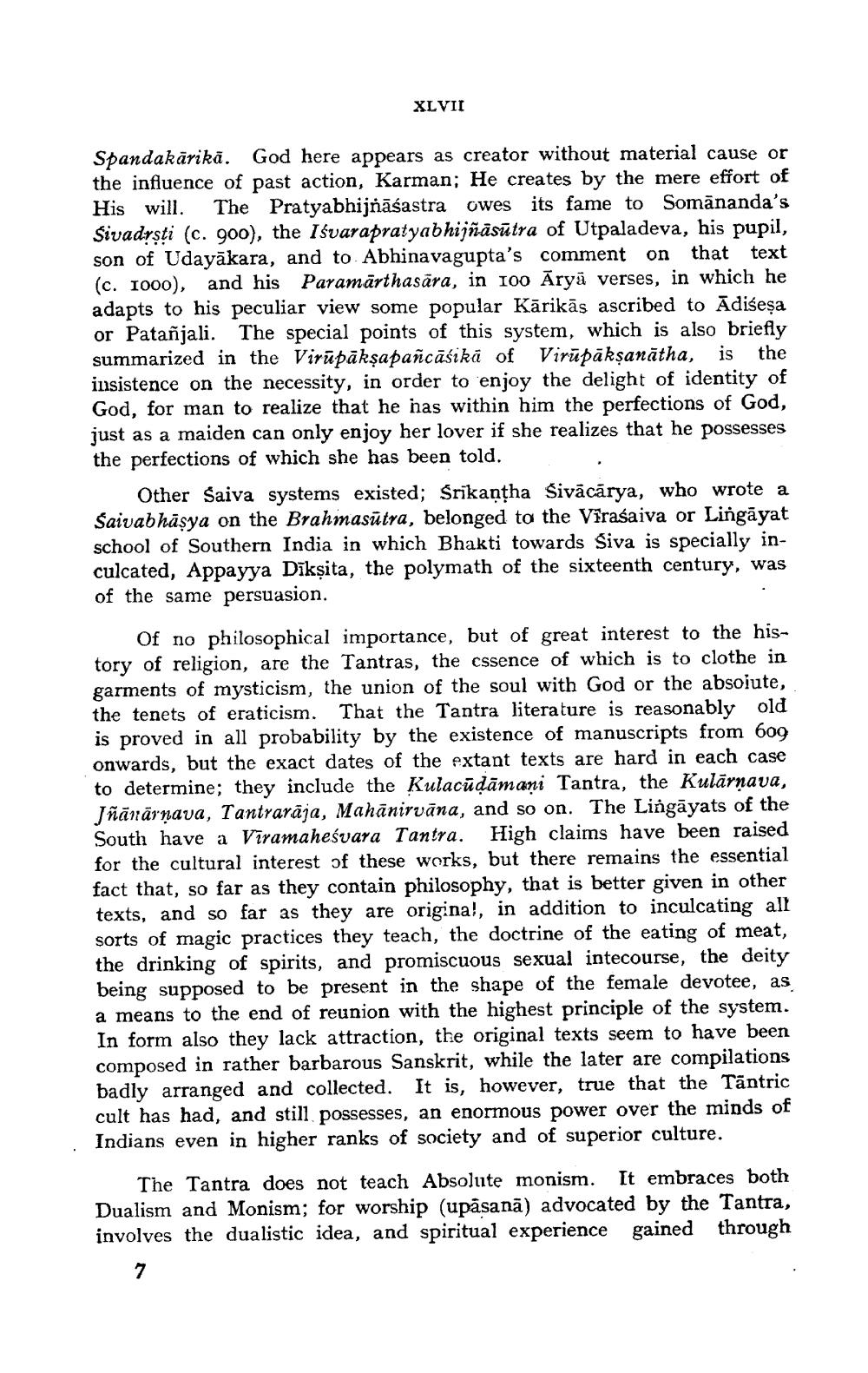________________
XLVII
Spandakārikā. God here appears as creator without material cause or the influence of past action, Karman; He creates by the mere effort of His will. The Pratyabhijñāśastra owes its fame to Somānanda's Sivadrsti (c. 900), the Isvarapratyabhijñāsūtra of Utpaladeva, his pupil, son of Udayākara, and to Abhinavagupta's comment on that text (c. 1000), and his Paramārthasāra, in 100 Āryā verses, in which he adapts to his peculiar view some popular Kārikās ascribed to Ādisesa or Patañjali. The special points of this system, which is also briefly summarized in the Virūpākşapañcāśikā of Virūpāksanātha, is the insistence on the necessity, in order to enjoy the delight of identity of God, for man to realize that he has within him the perfections of God, just as a maiden can only enjoy her lover if she realizes that he possesses the perfections of which she has been told.
Other Saiva systems existed; Srikantha Sivācārya, who wrote a Saivabhāşya on the Brahmasútra, belonged to the Viraśaiva or Lingāyat school of Southern India in which Bhakti towards Siva is specially inculcated, Appayya Dīksita, the polymath of the sixteenth century, was of the same persuasion.
Of no philosophical importance, but of great interest to the history of religion, are the Tantras, the cssence of which is to clothe in garments of mysticism, the union of the soul with God or the absolute, the tenets of eraticism. That the Tantra literature is reasonably old is proved in all probability by the existence of manuscripts from 609 onwards, but the exact dates of the extant texts are hard in each case to determine; they include the Kulacūdāmani Tantra, the Kulārnava, Jñānārnava, Tantrarāja, Mahānirvana, and so on. The Lingāyats of the South have a Vīramaheśvara Tantra. High claims have been raised for the cultural interest of these works, but there remains the essential fact that, so far as they contain philosophy, that is better given in other texts, and so far as they are original, in addition to inculcating all sorts of magic practices they teach, the doctrine of the eating of meat, the drinking of spirits, and promiscuous sexual intecourse, the deity being supposed to be present in the shape of the female devotee, as a means to the end of reunion with the highest principle of the system. In form also they lack attraction, the original texts seem to have been composed in rather barbarous Sanskrit, while the later are compilations badly arranged and collected. It is, however, true that the Tântric cult has had, and still possesses, an enormous power over the minds of Indians even in higher ranks of society and of superior culture.
The Tantra does not teach Absolute monism. It embraces both Dualism and Monism; for worship (upāsanā) advocated by the Tantra, involves the dualistic idea, and spiritual experience gained through




